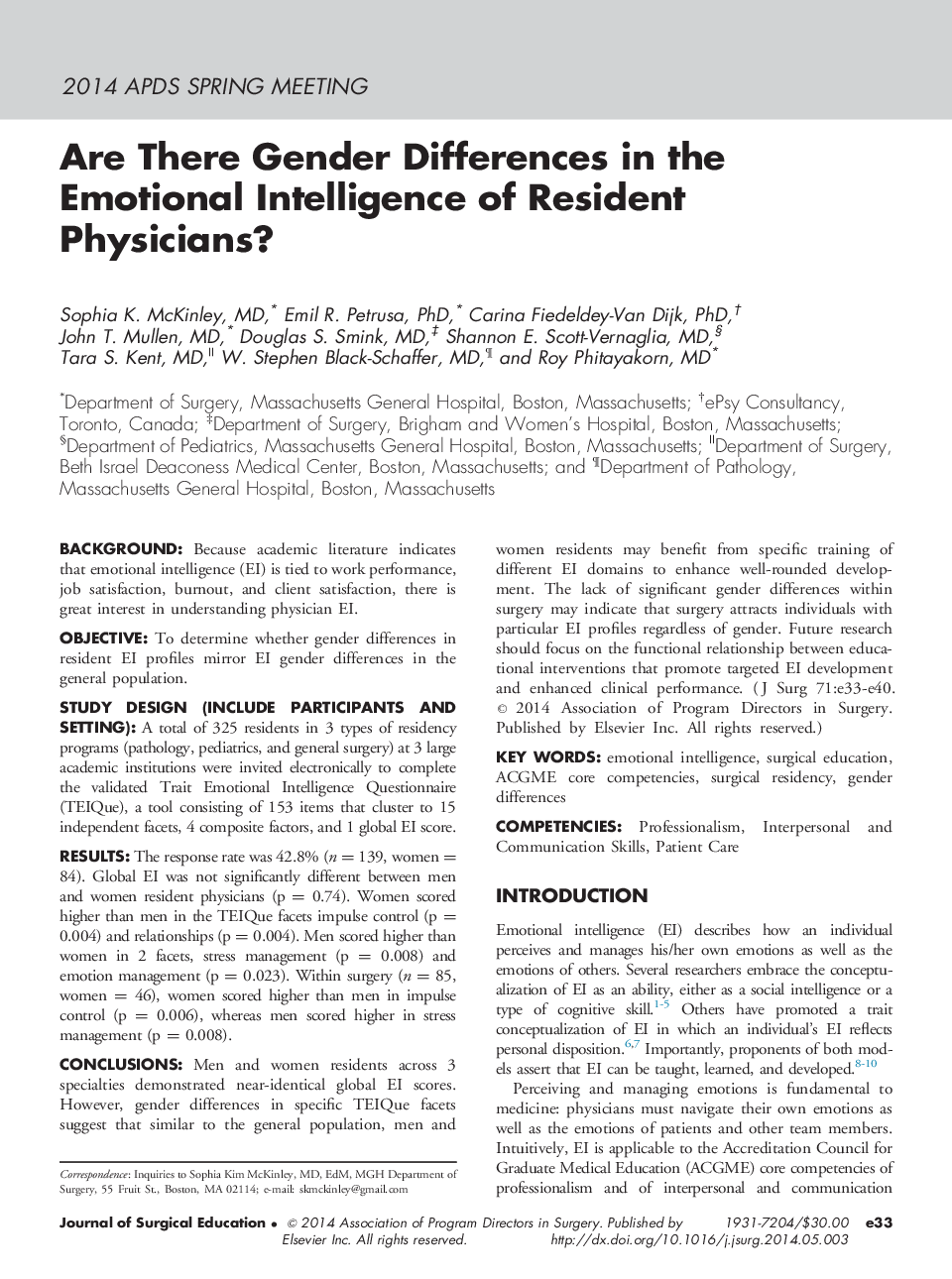| کد مقاله | کد نشریه | سال انتشار | مقاله انگلیسی | نسخه تمام متن |
|---|---|---|---|---|
| 4297897 | 1288335 | 2014 | 8 صفحه PDF | دانلود رایگان |
BackgroundBecause academic literature indicates that emotional intelligence (EI) is tied to work performance, job satisfaction, burnout, and client satisfaction, there is great interest in understanding physician EI.ObjectiveTo determine whether gender differences in resident EI profiles mirror EI gender differences in the general population.Study Design (Include Participants and Setting)A total of 325 residents in 3 types of residency programs (pathology, pediatrics, and general surgery) at 3 large academic institutions were invited electronically to complete the validated Trait Emotional Intelligence Questionnaire (TEIQue), a tool consisting of 153 items that cluster to 15 independent facets, 4 composite factors, and 1 global EI score.ResultsThe response rate was 42.8% (n = 139, women = 84). Global EI was not significantly different between men and women resident physicians (p = 0.74). Women scored higher than men in the TEIQue facets impulse control (p = 0.004) and relationships (p = 0.004). Men scored higher than women in 2 facets, stress management (p = 0.008) and emotion management (p = 0.023). Within surgery (n = 85, women = 46), women scored higher than men in impulse control (p = 0.006), whereas men scored higher in stress management (p = 0.008).ConclusionsMen and women residents across 3 specialties demonstrated near-identical global EI scores. However, gender differences in specific TEIQue facets suggest that similar to the general population, men and women residents may benefit from specific training of different EI domains to enhance well-rounded development. The lack of significant gender differences within surgery may indicate that surgery attracts individuals with particular EI profiles regardless of gender. Future research should focus on the functional relationship between educational interventions that promote targeted EI development and enhanced clinical performance.
Journal: Journal of Surgical Education - Volume 71, Issue 6, November–December 2014, Pages e33–e40
